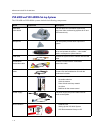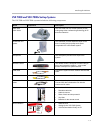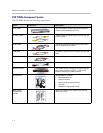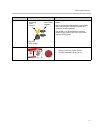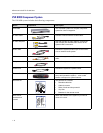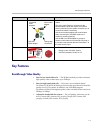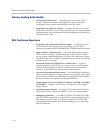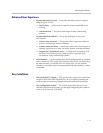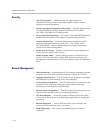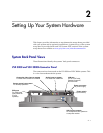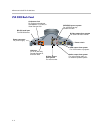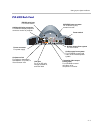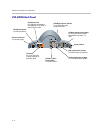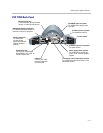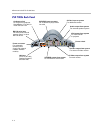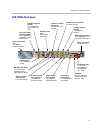
Administrator’s Guide for the VSX Series
1 - 12
Security
• Use AES encryption — Enable the AES encryption option to
automatically encrypt calls to other AES-capable systems, without
external encryption equipment.
• Connect encryption equipment to the system — Add the optional serial
V.35/RS-449/RS-530 network interface module to the VSX 7000,
VSX 7000s, VSX 7000e, or VSX 8000 system.
• Use an optical dialing isolator — The serial V.35/RS-449/RS-530 network
interface module supports NSA-approved optical dialing isolators.
• Control remote access — The local administrator can specify which
remote management interfaces can be used — FTP, Telnet, or the
VSX Web interface. The local administrator can configure a separate
password for remote management.
• Set the web access port — Enhance call security by specifying the web
access port to be used by VSX systems.
• Enable Security Mode — Security Mode is based on Transport Layer
Security (TLS) 1.0 using 168-bit Triple-DES. These protocols encrypt
management communication over IP, preventing access by unauthorized
users.
Remote Management
• Room monitoring — Administrators of VSX systems can monitor meeting
rooms in or out of a call using the Web Director feature in VSX Web.
• Language independence — Use VSX Web in your language to configure
and administer systems running in any other language.
• Secure remote management — The local administrator’s password on the
system prevents users from changing system configuration while
allowing you to manage the system remotely.
• Remote system configuration — Run the system setup wizard from your
web browser to get the system up and running remotely.
• Call Detail Reports — Access the system’s call history from VSX Web.
You can download the data to a spreadsheet application for sorting and
formatting.
• Remote diagnostics — Tools in VSX Web allow you to identify and
correct issues that affect the user’s experience.
• SNMP Reporting — VSX systems send SNMP reports to indicate
conditions.



